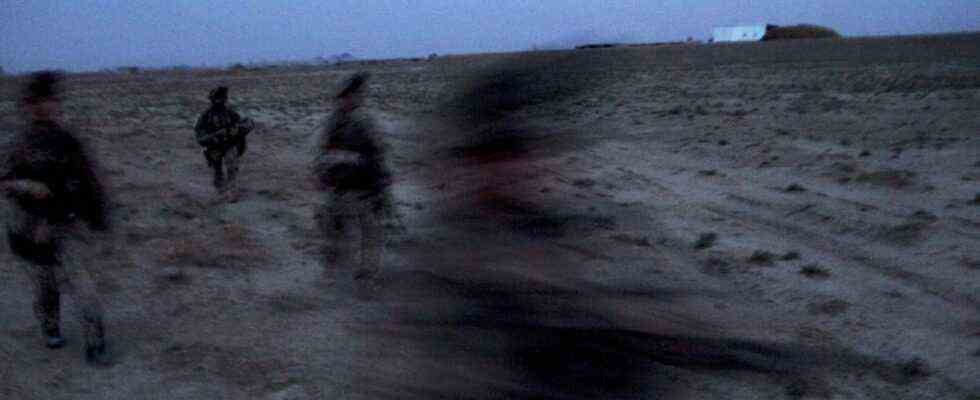Of course, these pictures have a strong impact. Men in uniform hold babies in their arms protectively. It is happening several times at Kabul airport these days: Desperate parents hand over their children to foreign soldiers. Last hope USA – photos like this one, distributed among others by the American army, depict one last time the narrative with which Washington and ultimately also Berlin justified the operation in the Hindu Kush: The western troops protect the civilian population from terrorists, preparing their self-sacrificing actions the ground on which human rights, democracy and women’s liberation should flourish.
Anyone who fears the acute danger of the factories becoming gelatinized by propagandistic sweeteners will find freshly mixed antidote in “The Longest War”. The Austrian author Emran Feroz writes against the transfiguration with which western societies view the wars that they began after September 11, 2001.
What was planned as a bitter balance sheet for “20 years of War on Terror” has become even more urgent with the recapture of Kabul by the Taliban. The events in Afghanistan have already overtaken Feroz’s analyzes to a large extent. Answers to the question: “How could this state collapse so quickly?”, Which politicians and analysts, secret service agents and journalists are currently asking with some surprise, are still there.
Emran Feroz: The longest war, 20 years of War on Terror, Westend, Frankfurt 2021, 224 pages, 18 euros.
On September 11, 2001, the author writes in the foreword, he unwillingly became a declarer of Afghanistan. “Emran, you are from Afghanistan,” the primary school teacher asked him in front of the assembled class. “Do you know why they did that?” Today Feroz, who was born in 1991, explains the country professionally, as a journalist and author, and for almost two weeks now he has also been on the air as an interview partner on the radio or on news channels such as CNN.
In order to be able to describe what others did not see or did not want to see, Feroz did not have to analyze any secret documents or get whistleblowers to speak. He traveled through the country several times for research and consistently dealt with two topics in particular that were repeatedly discussed in the debate on Afghanistan without ultimately leading to an honest view of the situation in the country and one’s own commitment there: On the one hand, Feroz is working on the immense corruption of the elites in Kabul and their involvement in war crimes, which the West partly ignored and partly promoted.
Feroz’s book is not a sober opinion, but an indictment
On the other hand, he describes the immense suffering that the alleged war on terror caused those people whom it ostensibly was supposed to free: through arbitrary drone attacks and night raids, through systematic torture and criminal assaults and murders by soldiers from the West and from local anti-terrorist units established by him. If you think of the crusader George W. Bush, the drone warrior Barack Obama and the machinations of the CIA, Feroz reminds you of Kunduz: According to some statements, up to 150 people died when two stolen tanker trucks were bombed at the request of the Bundeswehr in 2009. The civilian victims were never compensated, the commanding colonel was later promoted to general.
Feroz’s book is not a sober expert opinion, but an accusation that some will perceive as too harsh and, in turn, one-sided. Some readers – especially in ministries and media companies – will also be bothered by Feroz’s furor, for example, with regard to the orientalist perspectives that he perceives in Afghanistan policy and reporting on the country.
The fact that Feroz ‘points of view will have relevance beyond August 31, when the West has withdrawn its soldiers from the country, paradoxically shows the topicality that “The Longest War” has overtaken in parts. “In Afghans like Saleh, the Americans found the right personnel for the dirty work,” writes Feroz about the previous vice president, who was previously an at least unscrupulous head of the secret service. Amrullah Saleh is now organizing the armed resistance against the Taliban in the Punjir Valley and is being celebrated as a hero. Once again, one can confidently assume that the West will now openly or covertly support a man whom not a few regard as a war criminal and who for that reason alone will not be able to build a peaceful Afghanistan. The deployment of Western soldiers in the country may soon be over. It is not the “War on Terror”.

